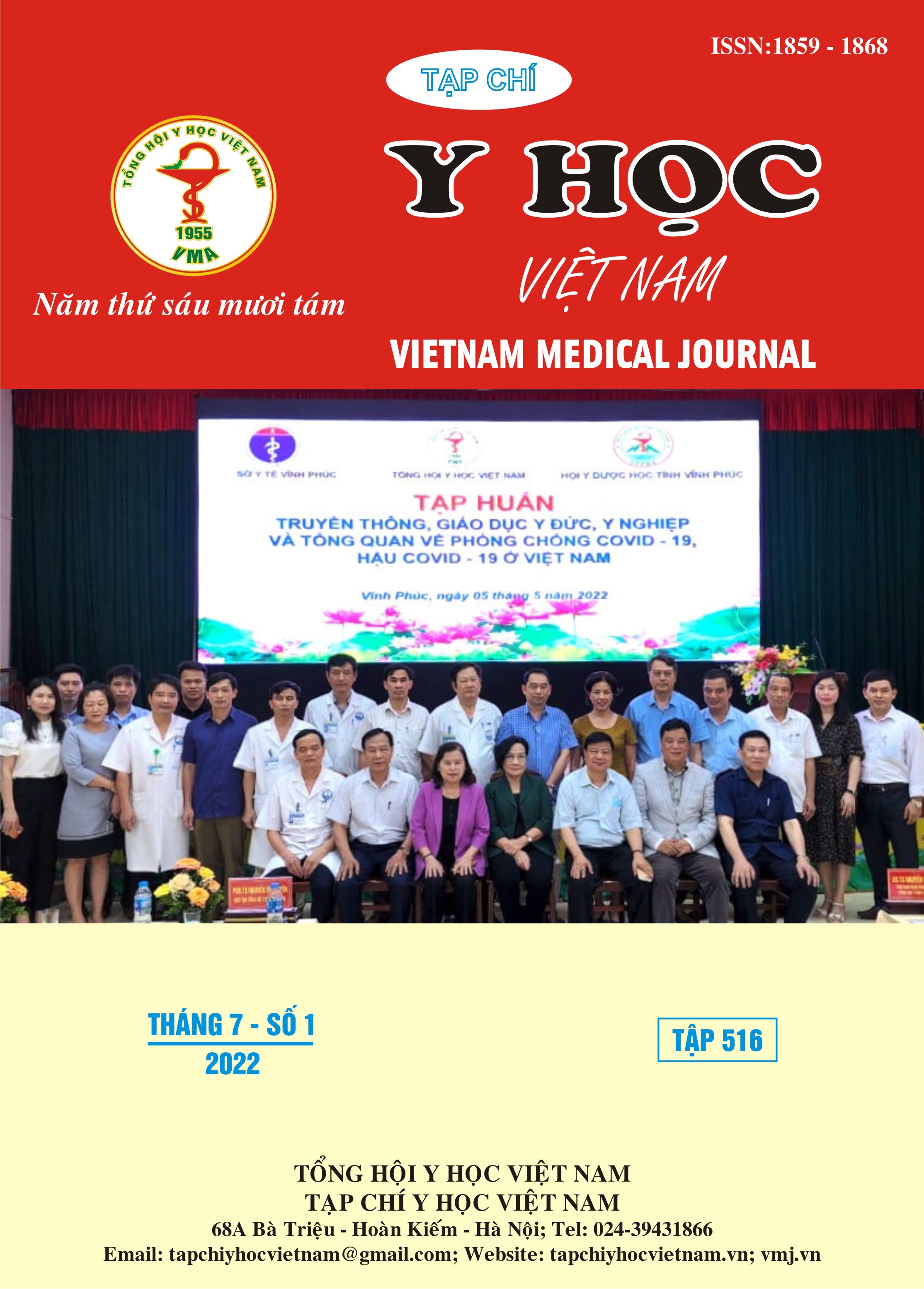HEMOGLOBINOPATHIES AND HERMOLOGICAL CHARACTERISTICS OF THE FRESH MAN STUDENTS IN CAN THO UNIVERSITY OF MEDICINE AND PHARMACY WITH MICROCYTIC HYPOCHROMIC ANEMIA
Main Article Content
Abstract
Background: Every year, students of Can Tho University of Medicine and Pharmacy (University of Medicine and Pharmacy) have a health check before admission and there are a large number of students (students) with hypochromic small red blood cells, a group of subjects at risk. Very high risk of carrying the hemoglobin disease gene. Objectives: To identify hemoglobin (Hb) disease forms and hematological characteristics of Hb disease forms in first-year students of the University of Traditional Chinese Medicine with hypochromic small red blood cells. Subjects and methods: A cross-sectional descriptive study on 219 hypochromic microcytic erythrocytes. Results: 39.7% of students had abnormalities in MCH (<27pg) and 63.3% of students had abnormalities in both MCV (<80fL) and MCH; There are 3 types of Hb disease, accounting for 32.9% total (72/219), heterozygous HbE (HbAE) accounted for 24.7%; Heterozygous β-Thalasemia (β-Thal) form accounted for 7.3% and HbH form of α-Thal disease (HbH) accounted for 0.9%. There are 58/72 (80.5%) Kinh people and 39/72 (54.2%) students are female; residence in Can Tho (15.3%) and other localities (84.7%). On hematological characteristics: red blood cell count; MCV; MCH, the average Hb index of β-Thal disease is: 6.06 ± 0.57x1012/L, respectively; 70.43 ± 5.37fL; 21.09 ± 2.06pg; 12.81 ± 0.83g/dL; of HbAE disease are: 5.59± 0.55x1012/L, respectively; 79.44 ± 3.42fL; 25.2 ± 1.48pg; 14.19 ± 0.52 g/dL and HbH form is: 7 ± 0.0x1012/L; 66 ± 0.85fL; 16.65±0.07pg; 11 ± 0.0g/dL. Conclusions: The total prevalence of Hb among first-year students of the University of Traditional Chinese Medicine is 32.9%. There are 3 types of disease identified as: heterozygous HbE 24.7%; Heterozygous β-Thalaseemia was 7.3% and HbH form of α-Thal disease was lowest, 0.9%. Red blood cell count values; MCV; MCH, mean Hb index differs according to Hb disease types.
Article Details
Keywords
hemoglobinopathies, microcytic hypochromic anemia, students, CTMP
References
2. Nguyễn Khắc Hân Hoan (2013), Nghiên cứu tầm soát và chẩn đoán trước sinh bệnh alpha và beta thalassemia, Luận án Tiến sĩ y học, Trường Đại học Y Dược Thành Phố Hồ Chí Minh.
3. Bạch Quốc Khánh và cộng sự (2019), Thực trạng mang gen bệnh thalassemia của dân tộc chơ-ro sống tại tỉnh Đồng Nai, Tạp chí y học Thành Phố Hồ Chí Minh, 23(6), tr. 272-279.
4. Lê Thị Hoàng Mỹ (2018), Nghiên cứu tần suất, đặc điểm thalassemia và các bệnh hemoglobin trong cộng đồng dân tộc khmer ở Đồng Bằng Sông Cửu Long, Luận án Tiến Sĩ y học, Trường Đại học Y Dược Hà Nội.
5. Nguyễn Hoàng Nam (2019), Nghiên cứu kiểu hình và kiểu gen ở bệnh nhi beta-thalassemia, Luận án Tiến sĩ y khoa, Trường Đại học Y Dược Hà Nội.
6. Phạm Thị Ngọc Nga (2012), Nghiên cứu sự di truyền các đột biến gây bệnh ở bệnh nhân Beta thalassemia vùng Đồng bằng sông Cửu Long bằng kỹ thuật sinh học phân tử, Luận án thạc sĩ, Trường Đại học Cần Thơ.
7. Buakhao J and et al. (2017), Prevalence and characterization of thalassemia among migrant workers from Cambodia, Lao PDR and Myanmar in Thailand. Southeast Asian J Trop Med Public Health, 48 (4), pp.1-11.
8. Fleur Wolff and et al (2013), Automated Capillary Electrophoresis in the Screening for Hemoglobinopathies, Capillary Electrophoresis of Biomolecules: Methods and Protocols, Methods in Molecular Biology, 980, pp.227-235.


